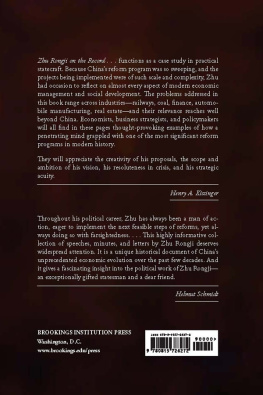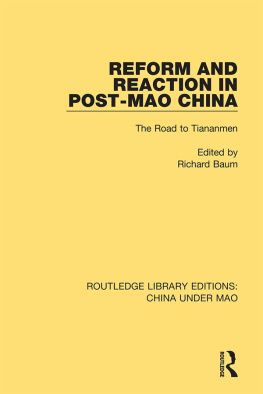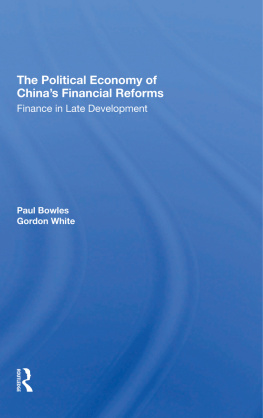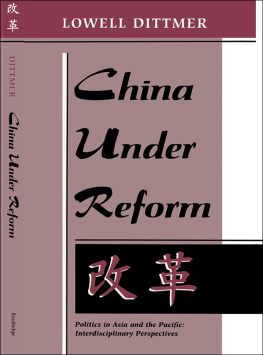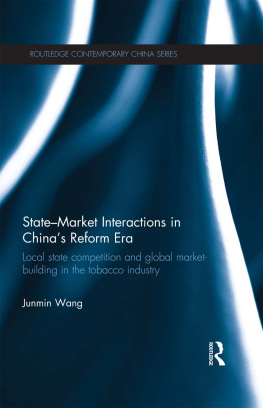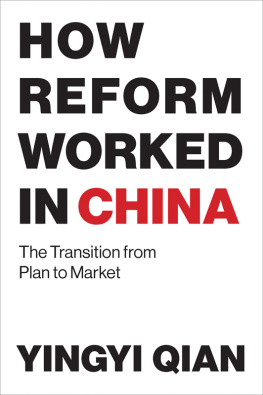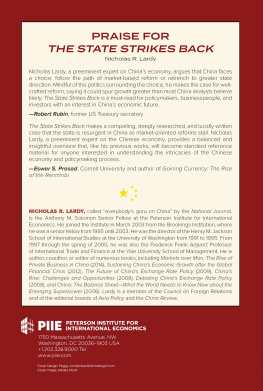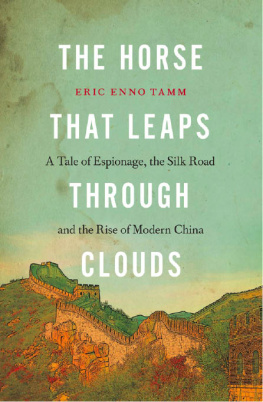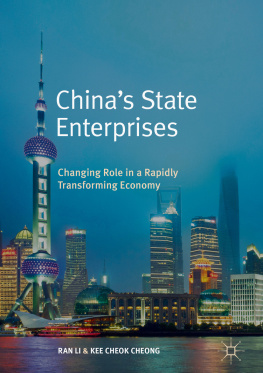China's explosive transformation from a planned economy to a more market-oriented one over the past three decades owes much to the charismatic reformer Zhu Rongji. His pragmatism and strong work ethic have been key forces in China's drive to greater modernization and global stature. He served as the mayor and party chief in Shanghai from 1987 to 1991, as vice premier of China from 1991 to 1998, and then as premier until 2003. The monumental collection in this volume and another published in 2013 brings together, for the first time in English, over one hundred important speeches, articles, letters, and instructions written during Zhu's terms as vice premier and premier, when he had major responsibility for fulfilling Deng Xiaoping's vision and setting China on a new and fruitful course.
During his time in office, Zhu streamlined government agencies, overhauled the financial sector, restructured state-owned enterprises, and led the negotiations that resulted in China's accession to the World Trade Organization. Through his many conversations with eminent international economists, he sought to learn from the experiences of other countries without uncritically copying their methods. Even as China's economy boomed, he repeatedly warned against destroying the environment in the blind pursuit of growth. The ramifications of these reforms are still being felt throughout China and around the world, and Zhu Rongji on the Record provides a real-time look at policy making during a period of unprecedentedly rapid transition.
These pages also reflect the forthright personality that gained great popularity with the Chinese public. Zhu publicly lambasted substandard construction projects as tofu dregs, urged city planners not to build villages that look like cities and cities that look like villages, and reminded high-ranking officials to be frugal during their inspection tours around the country. His stated goal was to build an administration that was clean, diligent, pragmatic, and efficient.
In addition to revealing the evolution of Zhu's thinking and demonstrating how he helped transform the world's most populous nation, this book provides insight into the course of reform from the 1990s through the first part of the twenty-first centurya period of time that is key to the global order today.
Publication of this English edition of Zhu Rongji on the Record marks an important milestone in Sino-U.S. cultural exchange and a significant contribution to greater understanding between the world's two largest economic powers.

ZHU RONGJI served as mayor of Shanghai from 1987 to 1991, was China's vice premier from 1991 to 1998, and served as fifth premier of the People's Republic from 1998 to 2003. Between 1993 and 1995 he served concurrently as governor of the People's Bank of China. Henry A. Kissinger was U.S. secretary of state from 1973 to 1977. Helmut Schmidt was chancellor of West Germany from 1974 to 1982.
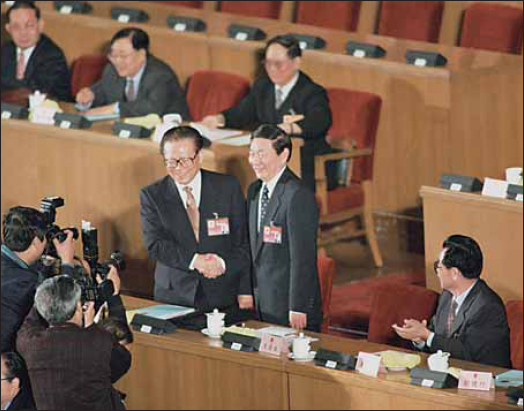
Being congratulated by Jiang Zemin on being named Premier by the first session of the Ninth National People's Congress on March 17, 1998. (Photograph by Wang Jianmin, Xinhua News Agency)
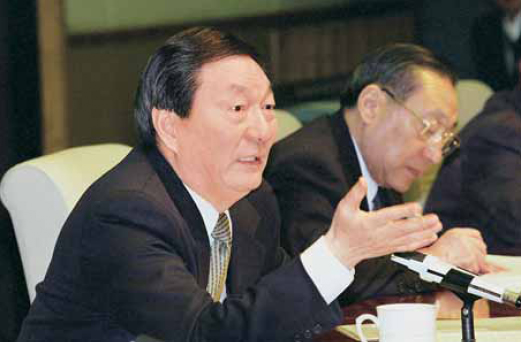
Chairing and speaking at the first plenary meeting of the State Council in Zhongnanhai, Beijing, on March 24, 1998. At right is Li Lanqing, Politburo member and Vice Premier. (Photograph by Liu Jianguo, Xinhua News Agency)
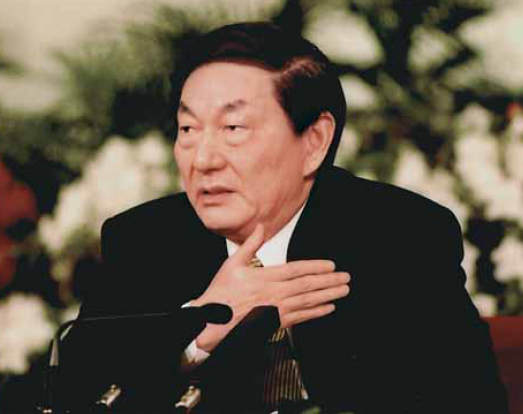
Responding to questions from Chinese and foreign reporters at a press conference during the first session of the Ninth National People's Congress on March 19, 1998. (Photograph by Zhao Yingxin, Xinhua News Agency)
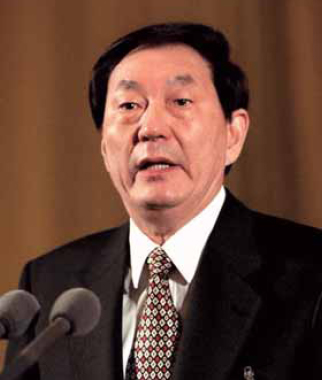
Delivering the Report on the Work of the Government at the second session of the Ninth National People's Congress on March 5, 1999. (Photograph by Ju Peng, Xinhua News Agency)
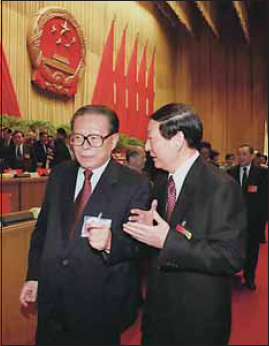
In conversation with Jiang Zemin at the opening of the third session of the Ninth National People's Congress in the Great Hall of the People on March 5, 2000. (Photograph by Wang Xinqing, Xinhua News Agency)
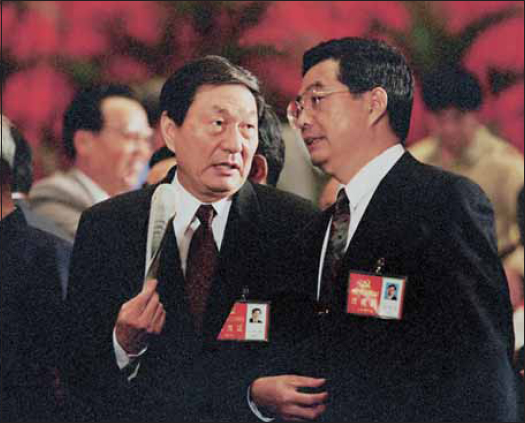
In conversation with Hu Jintao at the opening of the 15th Congress of the Chinese Communist Party in the Great Hall of the People on September 12, 1997. (Photograph by Lan Hongguang, Xinhua News Agency)
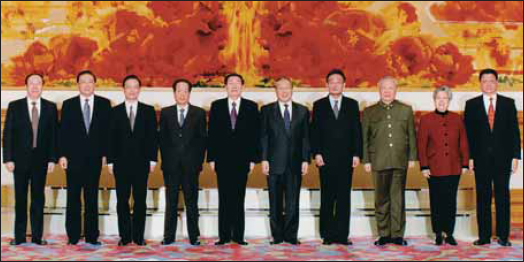
Group photo of the State Council leadership on January 27, 2003. From left to right: Ismail Amat, Luo Gan, Wen Jiabao, Qian Qizhen, Zhu Rongji, Li Lanqing, Wu Bangguo, Chi Haotian, Wu Yi, and Wang Zhongyu.
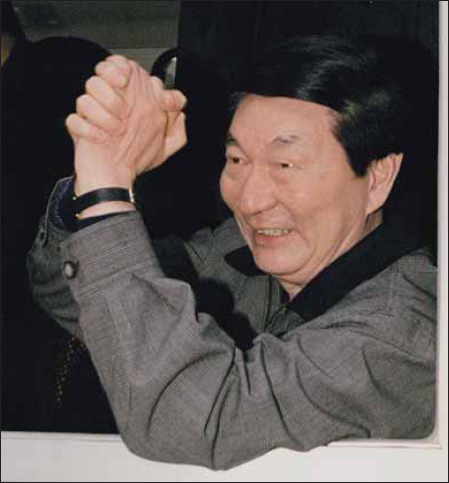
On an inspection tour of Jishou University, Jishou, Hunan Province, on April 7, 2001.

SPEECH AT THE FIRST PLENARY SESSION OF THE STATE COUNCIL
March 24, 1998
Last night I barely slept, thinking about today's speech. Because this is a plenary meeting of the State Council, I had earlier asked the State Council Research Office to draft a speech, which since then has been revised several times and commented on by all the Vice Premiers and State Councilors. It is a very comprehensive draft, but I'm not going to read it today. It will be printed and distributed to all of you. Instead, this is an impromptu speech for which I take full responsibility. Consider it for your reference only.
I'd like to focus on three topics: (1) the most urgent issues to be resolved this year; (2) reforms of government agenciesif this is not handled well now, the stability of our entire society and the normal operations of government will be at risk; and (3) the need for a major change in the style and mode of work in this administrationwithout such a change, we won't be able to accomplish our mission. However, I'm going to discuss these issues in reverse order, starting with the State Council's style and mode of work.
Transforming the Government's Style and Mode of Work
Colleagues, the first session of the Ninth National People's Congress clearly has great expectations of our administration, and the media both at home and abroad all place great hope in it. We must therefore ask how we can achieve the weighty task that the people have entrusted us with. I expressed my true feelings in this regard at the press conference at the conclusion of that first session.room at all in your remarks? They raised the question out of concern for me, in that they felt these things could not be accomplished, not even in five years, let alone three. So why did I say that? Because I feel deeply that this administration is being given a historic opportunity as it moves between two centuries, a chance not only to carry on what has come before but also to open up the way forward. If we were to pass up this opportunity, it would be hard for China to achieve things in the next century.

